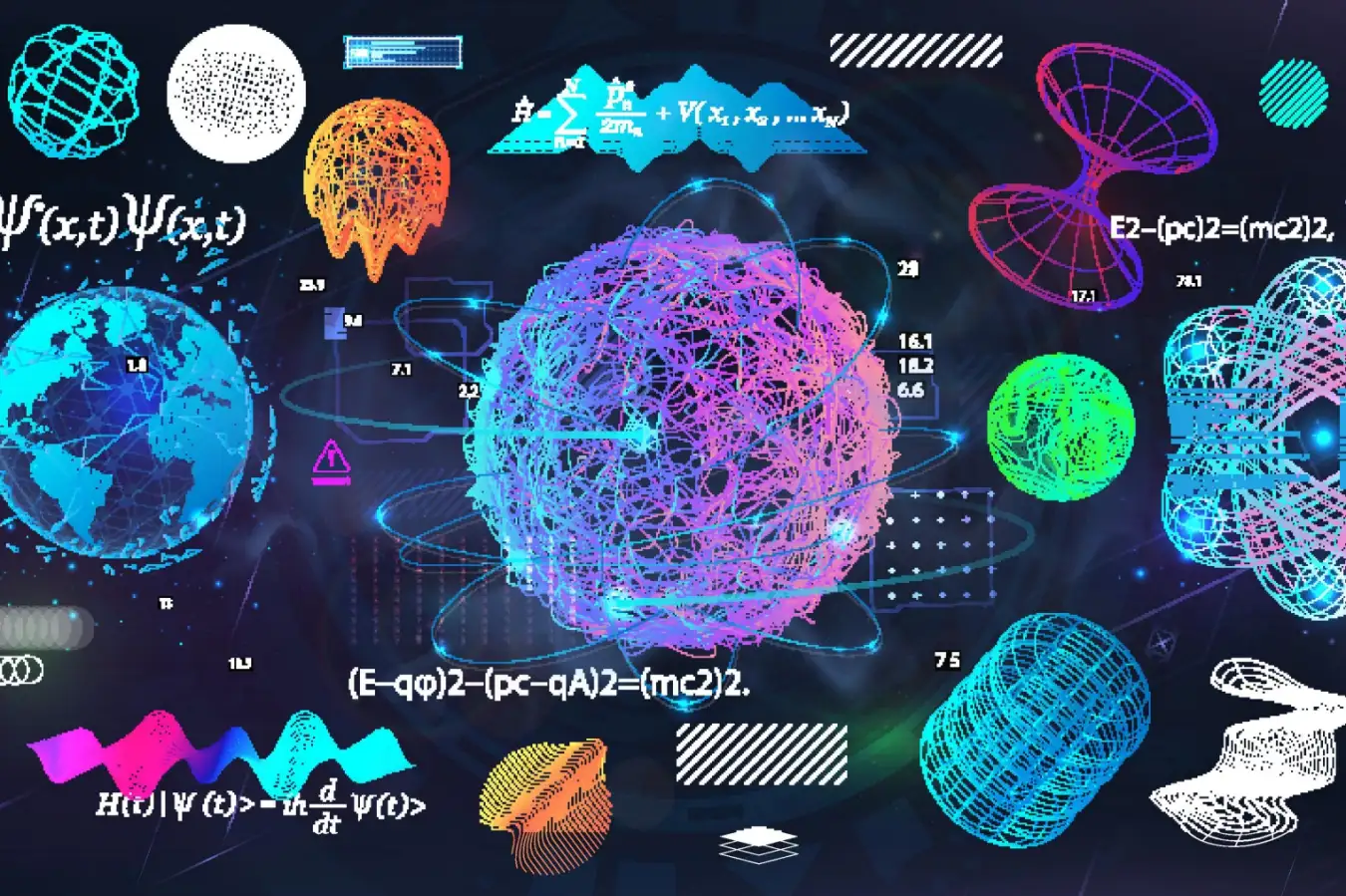Introduction
Quantum mechanics stands as one of the most revolutionary scientific developments of the past century. Its principles govern the microscopic world, reshaping our understanding of matter, energy, and the very fabric of reality. As we mark the 100th anniversary of quantum mechanics in 2025, we embark on an exploration of its origins, evolution, and profound impact on science, technology, and daily life. This guide provides a deep dive into quantum mechanics, its technological applications, and the unresolved mysteries that continue to challenge modern physics.
The Birth of Quantum Mechanics: A Century of Discovery
The roots of quantum mechanics trace back to the early 20th century, when classical physics failed to explain certain experimental results. The journey to quantum theory began with Max Planck’s introduction of energy quanta in 1900, followed by Albert Einstein’s work on the photoelectric effect in 1905. However, it was in 1925 that physicists Werner Heisenberg, Erwin Schrödinger, and Paul Dirac formulated the mathematical framework that would define quantum mechanics as a field.
These foundational discoveries set the stage for a paradigm shift in physics. The quantum revolution provided explanations for atomic and subatomic behavior, laying the groundwork for numerous technological innovations that define our modern world. Over the past century, this field has expanded into numerous branches of science, influencing everything from materials science to cosmology.
The Evolution of Quantum Theory
Following the initial breakthroughs, the late 20th century saw rapid advancements in quantum field theory, quantum electrodynamics, and quantum chromodynamics. The emergence of quantum information theory further extended the implications of quantum mechanics, giving rise to fields such as quantum cryptography and quantum computing. Today, quantum mechanics is integral to developing next-generation technologies, further cementing its importance across industries and scientific disciplines.
Why Quantum Mechanics Matters in 2025
As we step into the second century of quantum mechanics, its relevance has only grown. The theory remains a cornerstone of scientific research and technological advancement. Here’s why quantum mechanics is crucial today:
- Understanding the Universe: Quantum mechanics explains atomic structure, the behavior of particles, and phenomena like black holes and neutron stars.
- Advancing Technology: Devices such as semiconductors, lasers, and quantum computers rely on quantum mechanics.
- Shaping the Future: The next generation of quantum research seeks to harness entanglement, superposition, and quantum tunneling for groundbreaking applications.
The Role of Quantum Mechanics in Modern Science
Beyond its direct applications, quantum mechanics has influenced fields as diverse as chemistry, biology, and engineering. Quantum chemistry has revolutionized our understanding of molecular interactions, leading to advances in drug development and materials science. Quantum mechanics is also playing a role in the study of biological systems, with research investigating how quantum effects may contribute to photosynthesis, enzymatic activity, and even neural processing in the human brain.
Key Technological Applications

Quantum mechanics has revolutionized multiple industries, with some of its most influential applications including:
- Semiconductors and Electronics: Modern computing and digital devices exist thanks to quantum physics.
- Lasers and Photonics: Key to telecommunications, healthcare, and industrial manufacturing.
- Magnetic Resonance Imaging (MRI): A lifesaving medical technology that operates on quantum principles.
- Quantum Computing: Offering unprecedented computational power, quantum computers are poised to revolutionize problem-solving across fields such as cryptography, materials science, and artificial intelligence.
- Quantum Sensors: High-precision quantum-based sensors are being developed for applications in navigation, environmental monitoring, and medical diagnostics.
- Quantum Cryptography: The advent of quantum key distribution (QKD) is expected to revolutionize cybersecurity, providing virtually unbreakable encryption methods.
The International Year of Quantum Science and Technology
In celebration of a century of quantum discoveries, the United Nations has declared 2025 as the International Year of Quantum Science and Technology. This initiative aims to:
- Increase global awareness of quantum mechanics and its influence on daily life.
- Foster interdisciplinary collaboration in quantum research.
- Encourage investment in quantum-based innovations.
Throughout the year, events such as QuantumFest 2025 will unite researchers, educators, and enthusiasts in discussions and demonstrations of quantum technologies. Public lectures, hands-on workshops, and international collaborations are expected to bring quantum science into mainstream discussions, making it more accessible to people of all backgrounds.
Common Misconceptions About Quantum Mechanics
Quantum physics often appears mysterious and counterintuitive, leading to widespread misconceptions. Let’s explore some of the most common misunderstandings:
- Quantum Entanglement is Not Magic: While entangled particles exhibit seemingly instantaneous connections, they do not allow for faster-than-light communication.
- The Uncertainty Principle is a Fundamental Limit: Heisenberg’s principle doesn’t reflect measurement inaccuracies but an intrinsic property of nature.
- Schrödinger’s Cat is a Thought Experiment, Not a Real Paradox: The famous illustration simply highlights the peculiar nature of quantum superposition.
- Quantum Mechanics is Not Just for Physicists: While its mathematical formalism may be complex, its applications affect nearly every aspect of modern technology, making it relevant beyond academia.
Open Questions and the Future of Quantum Research
Despite its success, quantum mechanics remains incomplete. Many unanswered questions continue to intrigue physicists:
- The Nature of Quantum Entanglement: What truly causes this bizarre link between particles?
- The Quest for Quantum Gravity: How can quantum mechanics be reconciled with Einstein’s general relativity?
- Quantum Biology: Could quantum mechanics play a role in biological processes such as photosynthesis and consciousness?
- The Measurement Problem: Why does the act of measurement seem to collapse quantum wave functions, transitioning a system from a probabilistic to a definite state?
- Dark Matter and Quantum Physics: Could quantum effects provide insights into one of the greatest astrophysical mysteries?
Scientists worldwide are actively pursuing these answers, pushing the boundaries of what we know about the universe. Large-scale projects like the development of practical quantum computers, high-precision quantum sensors, and quantum networks are expected to bring transformative changes to science and society in the coming decades.
Conclusion
Quantum mechanics has shaped the past century and will undoubtedly define the future. Its principles drive cutting-edge research, fuel technological innovations, and continue to challenge our understanding of reality. As we celebrate 100 years of quantum discoveries in 2025, we stand at the brink of even greater scientific breakthroughs.
Quantum mechanics is no longer just a subject of theoretical speculation; it has become an essential tool for engineering, medicine, computing, and beyond. The future of quantum science holds limitless potential, from deeper explorations of fundamental physics to practical advancements that will change the way we live, work, and communicate.
Call to Action
Stay informed about the latest developments in quantum physics by following expert discussions and attending global events. The quantum revolution is here—be part of it! Whether you are a student, researcher, entrepreneur, or enthusiast, understanding quantum mechanics will prepare you for the technological transformations of the future.



A must-read guide for anyone looking to grasp the complexities of quantum theory in 2025. The quantum revolution is closer than we think!